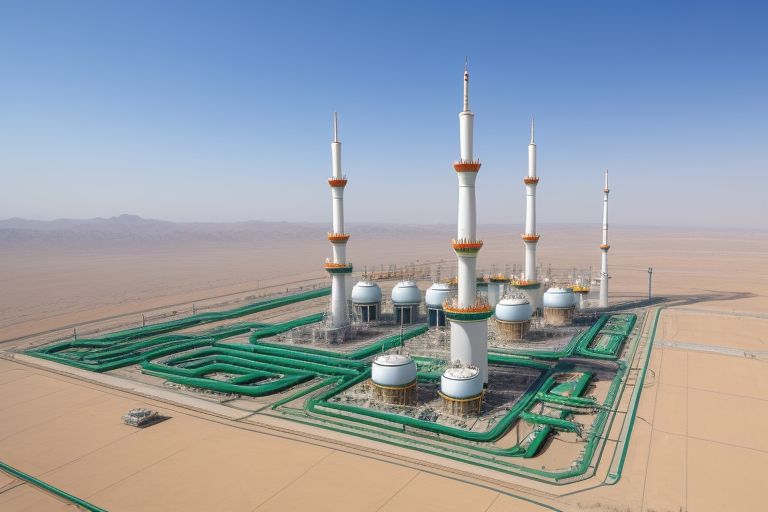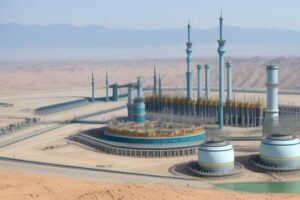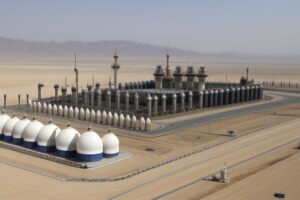Saudi Fuel Industry: Powering the Nation and Beyond
Saudi Arabia has long been recognized as a global leader in the fuel industry. With vast petroleum reserves, cutting-edge refining facilities, and strategic export relationships, the kingdom plays a crucial role in meeting the world’s energy demands. The Saudi fuel industry encompasses crude oil production, refining, and distribution of gasoline, diesel, and aviation fuels. This article explores the significance of Saudi Arabia’s fuel industry, its impact on global markets, and its future outlook.
The Foundation of the Saudi Fuel Industry
Saudi Arabia’s fuel industry is built upon its enormous crude oil reserves, which are among the largest in the world. The country’s oil fields, including Ghawar, Safaniya, and Shaybah, produce millions of barrels of crude oil daily. This crude is then refined into various fuel products for domestic consumption and export.
The Saudi Arabian Oil Company (Saudi Aramco), the world’s largest oil producer, is at the heart of the country’s fuel sector. Aramco operates state-of-the-art refineries that produce high-quality fuels meeting international standards. These refineries are located across Saudi Arabia and include major facilities in Jubail, Yanbu, and Ras Tanura.
Key Fuel Products and Their Uses
The Saudi fuel industry produces a range of refined fuel products that serve different sectors, including transportation, power generation, and industry. Some of the key products include:
- Gasoline – The primary fuel for passenger vehicles, widely used in Saudi Arabia and exported to international markets.
- Diesel – Used for trucks, heavy machinery, and industrial applications.
- Jet Fuel – Essential for commercial and military aviation.
- Liquefied Petroleum Gas (LPG) – Used for cooking, heating, and industrial processing.
- Fuel Oil – Utilized for power generation and shipping industries.
With the rapid growth of transportation and industry worldwide, Saudi fuel exports remain crucial for energy security and economic stability.
Saudi Fuel Industry’s Global Impact
As one of the largest fuel exporters, Saudi Arabia supplies refined petroleum products to Asia, Europe, and North America. The kingdom’s ability to produce and distribute fuel efficiently has made it a key supplier in the global energy sector.
Saudi Arabia’s fuel pricing and production policies also influence global fuel prices. Through OPEC+, the kingdom collaborates with other oil-producing nations to regulate supply, ensuring market stability and preventing price fluctuations.
Economic and Strategic Importance
The fuel industry plays a vital role in Saudi Arabia’s economy, contributing significantly to government revenues and job creation. Key economic benefits include:
- Revenue Generation – Fuel exports provide billions of dollars in revenue annually.
- Industrial Growth – The availability of refined fuel supports various industries, including manufacturing and petrochemicals.
- Employment Opportunities – The fuel sector creates thousands of jobs in refining, distribution, and research.
- Infrastructure Development – Investments in pipelines, refineries, and storage facilities enhance energy efficiency and security.
Challenges Facing the Saudi Fuel Industry
Despite its strengths, the Saudi fuel industry faces several challenges, including:
- Fluctuating Oil Prices – Global market changes can impact fuel profitability.
- Environmental Concerns – Increasing global efforts to reduce carbon emissions affect demand for fossil fuels.
- Technological Shifts – The rise of electric vehicles and alternative energy sources challenges traditional fuel markets.
- Geopolitical Uncertainty – Trade restrictions and regional conflicts can disrupt supply chains.
Future of the Saudi Fuel Industry
Saudi Arabia is adapting to global energy trends by integrating sustainable practices and investing in alternative fuels. The kingdom is exploring:
- Hydrogen Production – Developing blue and green hydrogen as cleaner energy sources.
- Carbon Capture Technologies – Reducing emissions from fuel production.
- Renewable Energy Expansion – Investing in solar and wind energy alongside fuel production.
- Fuel Efficiency Improvements – Enhancing refining processes to produce cleaner and more efficient fuels.
Travel and Business Opportunities in Saudi Arabia
For travelers looking to visit Saudi Arabia for business, tourism, or religious purposes, obtaining a visa is essential. Visitors can apply for a Saudi Visa for Luxembourg Citizens or a Saudi Visa for Umrah Pilgrims for easy access to the kingdom.
Conclusion
The Saudi fuel industry remains a cornerstone of the kingdom’s economy and a key player in global energy markets. While challenges such as environmental concerns and market fluctuations exist, Saudi Arabia continues to innovate and expand its fuel sector. Through investments in cleaner energy and strategic global partnerships, the kingdom is positioning itself for a sustainable and prosperous future in the energy sector.














Post Comment